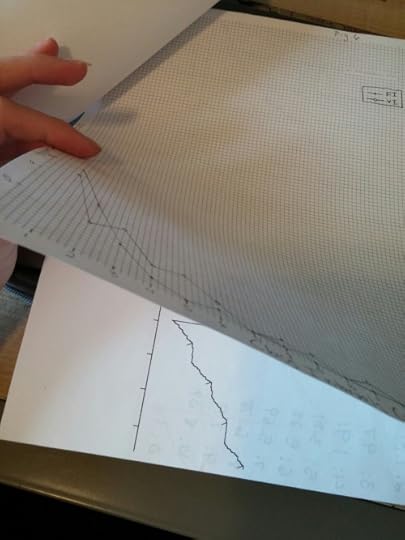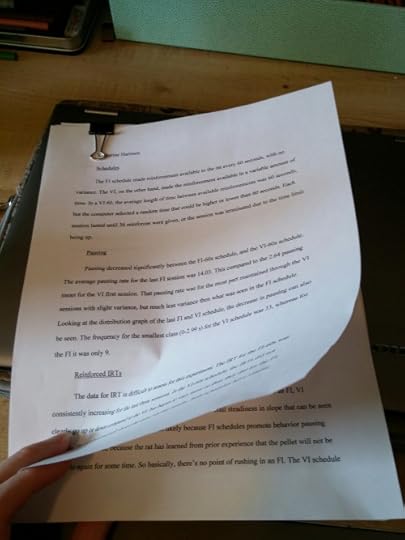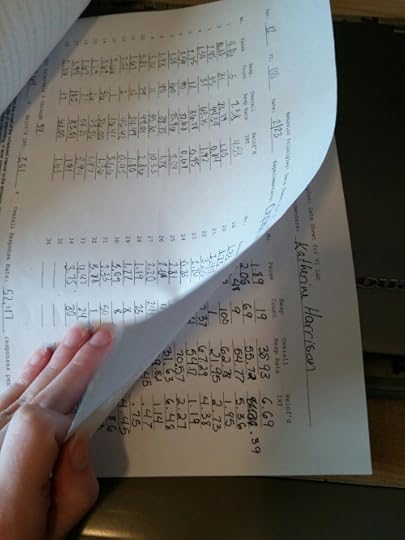Katherine Frances's Blog, page 384
March 21, 2015
The Dystopian Society
imaspectrum asked you:
Could you write about dystopian societies please?
What is a Dystopian Society?
An oppressed society masqueraded as a utopia through authoritative or authoritarian control in an imagined universe that are sometimes meant to address current social, political, or otherwise societal trends and issues in subtle ways.What is Not a Dystopian Society?
An apocalyptic (ex: World War Z) or post-apocalyptic (ex: The Walking Dead) society or world that takes place during or after a massive disaster that caused the full collapse of a society or region, often resulting in “the end of the world”.Characteristics:
Heavy control of the population through force, propaganda, fear, or other means set in place by the main power and its subordinates, often for the reason of keeping the society “perfect” and safe.
Strictly defined and sometimes segregated social ranks or systems in which it is almost impossible to move up.
Dehumanization for the sake of promoting humanity or society.
Characters are fearful of each other, other societies, or the central power and may be afraid to talk about it in fear of persecution.
Limited rights and strict laws that are said to be put in place “for the greater good” or to promote society.
Often futuristic
Massive conformity and ridicule against nonconformists by authority and/or by the general population.
Other extremes of oppression based on a multitude of factors, often certain traits or characters people are born with or common human activities (ex: dating or reading).
A central power that is praise, truthfully or out of fear, by the population.
High surveillance.In a dystopia, the protagonist is often the character who feels out of place, is ostracized for some reason, or who realizes the issues of their society and dares to speak up about it. However, a secondary character may also introduce these ideas to the protagonist. These characters are rarely in positions of power and often start out as ordinary citizens who can easily be replaced. The trick with these characters is not to make them preachy when they speak out about certain societal aspects.
The antagonist is most often a character or a central power of some kind. However, the antagonist can be both thus making more than one antagonist.
Other common characters and archetypes include:
The Reluctant Citizen (often the protagonist) - a character who is a typical citzen, but who finds faults in the society.
The Faithful Citizen - a character who is a typical citizen and who is faithful to the society
The Law Enforcer - a faithful citizen(s) or authority character(s) who acts as a lesser antagonist by enforcing societal norms and laws
The Catalyst - a character who helps the protagonist have an epiphany about the society and turn against it
The Outcast - a character, sometimes the protagonist, who is a nonconformist whether by choice or not
The Tyrant/Dictator/Leader - the central powerThe majority of dystopian societies start from war, disease, or natural disaster. Within those reasons, there may be a history of an apocalypse and a post-apocalyptic society before organized societies took place after the disaster.
More:
TV Tropes: Dystopia
5 Dystopian Cliches (crosses over with post-apocalyptic cliches)
WriteWorld: Writing Dystopia
Writing Convincing Dystopias
Writing YA Dystopia
YA Dystopian ClichesBooks:
Best Dystopian and Post-Apocalyptic Fiction
If You Like the Hunger Games You Will Like…
2012 Must Have Dystopians
Best Dystopian Romance
Gay Dystopic
2013 YA Dystopia
Smart Apocalyptic and Dystopian Fiction (I highly recommend #5)
YA Dystopias with Hope
Best Dystopian Originals
Dystopian of 2014
Little Known Dystopias
"You are your own poison and antidote."
"Novels aren’t just happy escapes; they are slivers of people’s souls, nailed to the pages, dripping..."
- Brandon Sanderson
(via maxkirin)
March 18, 2015
"It was one of those March days when the sun shines hot and the wind blows cold; when it is summer in..."
- Charles Dickens, Great Expectations (via wordsnquotes)
"Self-love is a good thing but self-awareness is more important. You need to once in a while go ‘Uh,..."
- Louis C.K. (via thatkindofwoman)
If anyone has wondered why my internet presence has been totally...




If anyone has wondered why my internet presence has been totally zilch lately (which if you have that’s totally sweet of you/awesome/I love you forever) but this is why. Behavioral analysis is not fun guys. It is not fun.
*whispers desperately* spring break is almost here
Let's Talk About: Point of View, part 6
Last time I finished up with second person; today we’ll tackled third. Third person point of view narration is the most commonly used, though it’s more complex than most people think. There are two distinct subsets of third person—omniscient and limited—but did you know there are subsets of these? Have you heard of psychic distance? It’s an integral idea to third person that many beginning and intermediate writers haven’t heard of. Let’s take this slow.
The question to ask yourself is: Do you need your reader to hear the thoughts of more than one character all in the same scene?
If your answer is yes, the third person omniscient POV may be for you.
Do you want some distance between your character and the audience?
If your answer is yes, the third person limited POV may be for you.
Third Person Point of View:
he, his; she, hers; they, their’s perspectiveThis POV features a narrator who relates the actions, reactions, and sometimes thoughts of the characters. Often thought of as the default perspective, third person is the most common point of view authors employ.
Fun fact: Omniscient means all-knowing, originating from the Latin “omnis" meaning "all" and "sciens" meaning "knowing." Often used to refer to gods.Since narrators aren’t characters, they aren’t restricted to the thoughts an actions of one character like the character-narrator of first person. This means that the narrator for a third person omniscient POV can portray everything (or rather, everything pertaining to the scene) all in the same scene. There’s no need for scene or chapter breaks. This differs from the third person limited and first person multi-character restriction. With first person or third person limited multi-character narration (where you have the limited points of view of various characters), a chapter break is required to start the new POV character.
When an author wants to have multi-character narration without being restricted to chapter breaks or the limited POV, the third person omniscient narration POV comes in handy. All you, as the author, need to be sure of is that each character has their own paragraph. While you don’t need the severe chapter break, you need to differentiate which character is having the thought. It may look something like this:
The door of the tavern screamed as a man stumped in with an old, wrinkled cape wrapped about him. Aleria scowled. He couldn’t have come in like a normal person? She wondered, Why does he always have to make a scene?
Durn glanced up at the door from the picked over pieces of his chicken. Just like Emerett to come sweeping in, he thought, chuckling. He waved to their final companion. “Here!”A slightly more specific subset of the omniscient third person is the universal omniscient. This narrating POV can see and tell the reader literally everything. Unlike the regular old omniscient narrator who can tell the audience everything about what the characters are thinking in one location at a time, the universal omniscient can tell the audience about anything and the thoughts of anybody taking place anywhere. The universal omniscient narrator could tell a reader about a mouse in the sewer halfway across the world from the characters who happens to pick up your demon virus and brings it directly into the character’s city.
Next time I’ll tell you about some of the problems that plague third person omniscient narration and some tips on how to alleviate them.
March 16, 2015
"Guard your writing time like a dragon guards treasure. This is your time with your story and..."
- Me, playing Skyrim and talking with a friend about writing (via graphei)
"It’s so unfair that the same love that puts fire in your chest, can one day turn to water and slowly..."
- Tanner Shindeldecker (via wordsnquotes)




